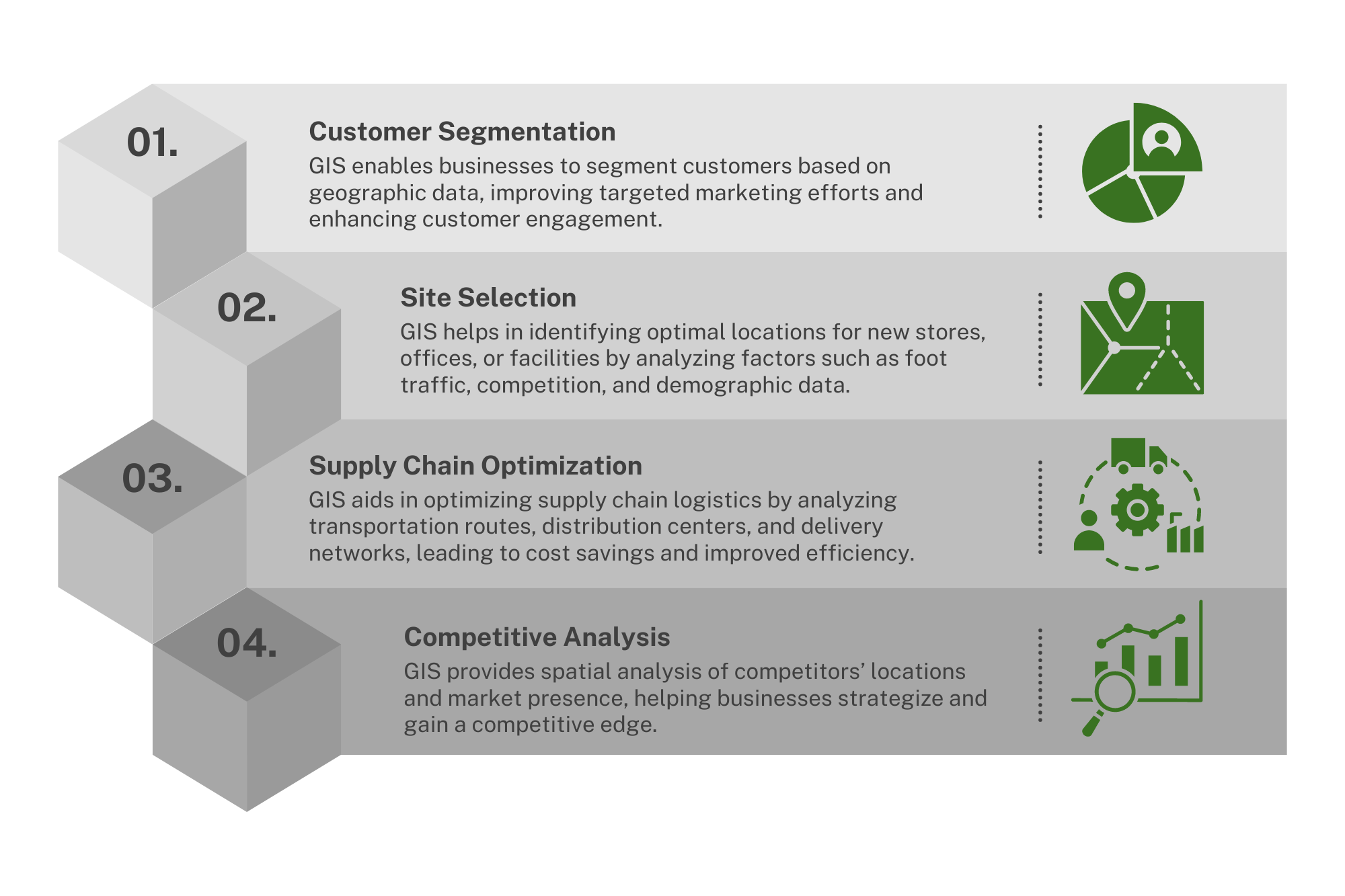How GIS Technology Transforms Market Analysis for Smarter Business Decisions
Discover how Geographic Information System (GIS) technology is revolutionizing market analysis by providing in-depth insights into market segmentation, geographic trends, and competitor analysis. Learn how businesses use GIS to optimize site selection, identify growth opportunities, and make data-driven decisions.

How GIS Technology Elevates Business Consulting for Data-Driven Success

Advantages of Using GIS in Market & Business Analysis

Key Features of GIS in Transportation & Logistics
Enhanced Market Research
Leverage GIS to analyze and visualize market trends, customer demographics, and competitor locations, enabling more informed and strategic business decisions.
Optimized Location Planning
Identify prime locations for retail stores, offices, or other business expansions based on spatial data and consumer behavior patterns.
Customer Segmentation
Use GIS to segment your customer base geographically, allowing for targeted marketing and personalized service strategies that increase customer satisfaction.
Sales Territory Management
Manage and optimize sales territories with GIS to ensure balanced workloads and maximize sales potential across different regions.
Risk Assessment & Mitigation
Identify potential business risks by analyzing geographical data related to economic trends, environmental factors, and local regulations.
Case Studies
Retail Chain Expansion


Optimizing Location Planning with GIS
Selecting the right location is a crucial factor in the success of any business. GIS plays a pivotal role in identifying optimal sites by analyzing factors like foot traffic, demographics, and proximity to competitors.
Benefits of Implementing GIS in Market & Business Analysis
Informed Decision-Making
Enhance the quality of your business decisions by incorporating spatial analysis that reveals market trends and consumer behavior.
Increased Efficiency
Optimize business operations with GIS, whether it’s through better sales territory management or streamlined location planning, resulting in increased productivity and reduced costs.
Improved Market Position
Gain a competitive edge by understanding and responding to market dynamics faster than your competitors through real-time GIS insights.
Customer-Centric Strategies
Improve customer satisfaction by tailoring your services and marketing efforts based on geographic customer data and preferences.
Risk Reduction
Proactively manage business risks by assessing geographic factors, such as market saturation, regulatory environments, and environmental risks.
What Our Clients Say





Ready to Transform Your Operations?
Contact us today to learn more about how GIS can revolutionize your market research and business strategies.
Frequently Asked Questions
GIS helps businesses choose optimal locations by analyzing factors such as customer demographics, proximity to competitors, foot traffic, and accessibility. This ensures that businesses can maximize visibility, customer reach, and ultimately, profitability.
Yes, GIS is highly effective in customer segmentation by geographically categorizing customers based on their behavior, preferences, and demographics. This allows businesses to create targeted marketing campaigns that resonate with specific customer segments, increasing engagement and conversion rates.
